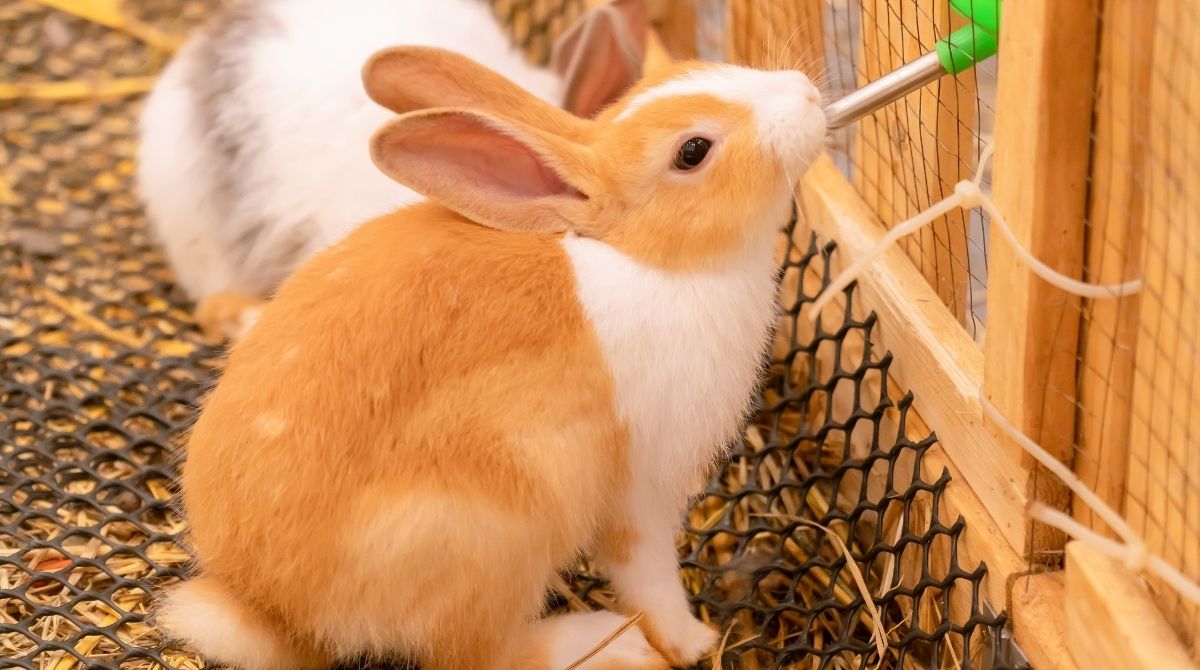Rabbits are adorable and social animals that require a balanced and appropriate diet to maintain good health. As pet owners, it’s important to be mindful of what we feed our furry companions.
One common question that arises is whether rabbits can drink apple juice. In this article, we will explore the dietary needs of rabbits, the potential risks of apple juice, and alternative hydration options for your rabbit.
Table of Contents
Understanding the Rabbit’s Diet
Rabbits are herbivores and have a delicate digestive system that is specifically adapted to a high-fiber, low-sugar diet.
Their natural diet consists mainly of hay, fresh vegetables, and a small amount of pellets.
It is essential to provide them with a diet that mimics their natural eating patterns to promote overall health and prevent digestive issues.
Potential Risks of Apple Juice for Rabbits
While apple juice may be a common beverage for humans, it is not suitable for rabbits. Here are some reasons why:
- High Sugar Content: Apple juice is naturally high in sugar, which can be harmful to rabbits. A rabbit’s digestive system is not designed to process large amounts of sugar, and excessive sugar intake can lead to weight gain, dental problems, and digestive disturbances.
- Lack of Fiber: Apple juice lacks the crucial fiber content that is vital for a rabbit’s digestive health. Fiber is necessary for proper gut motility, preventing issues like gastrointestinal stasis and other digestive disorders.
- Water Intake: Rabbits primarily obtain hydration from their food and should rely on fresh water as their main source of liquid intake. Offering apple juice may deter them from drinking enough water, potentially leading to dehydration and related health issues.
Alternative Hydration Options for Rabbits
Providing adequate hydration for rabbits is essential. Here are some safe and suitable alternatives to apple juice:
- Fresh Water: Always ensure that your rabbit has access to fresh, clean water at all times. Regularly change the water to prevent contamination and encourage regular drinking.
- Leafy Greens: Incorporating high-water content leafy greens into your rabbit’s diet can help with hydration. Vegetables such as lettuce, cucumber, celery, and radish tops are excellent choices.
- Moistened Vegetables: If your rabbit struggles to drink enough water, you can moisten their vegetables with a small amount of water to increase their fluid intake. This can be especially helpful during hot weather or if your rabbit is recovering from illness.
- Water-Rich Fruits: While fruits should be given in moderation due to their sugar content, some water-rich fruits like melons (e.g., watermelon) can be offered as occasional treats to provide additional hydration. Remember to remove any seeds or pits, as they can be harmful to rabbits.
Understanding Rabbits’ Health and Hydration
Monitoring your rabbit’s health and hydration is crucial. Here are some signs to look out for:
- Water Intake: Observe whether your rabbit is drinking water regularly. If you notice a sudden decrease in water consumption or signs of dehydration (e.g., dry mouth, sunken eyes), consult a veterinarian promptly.
- Urine Output: Keep an eye on your rabbit’s urine output. Normal urine should be clear or slightly yellow. If you notice a decrease in urine production or urine that appears concentrated or cloudy, it may indicate dehydration.
- Overall Well-being: Pay attention to your rabbit’s behavior and general well-being. Lethargy, reduced appetite, or changes in stool consistency can be signs of health issues, including dehydration.
While apple juice may be a popular beverage for humans, it is not suitable for rabbits. Rabbits have specific dietary needs, and a high-sugar, low-fiber drink like apple juice can have adverse effects on their health.
Instead, focus on providing fresh water, a balanced diet of hay and vegetables, and monitoring their overall hydration through signs of normal water intake, urine output, and general well-being.
If you have any concerns about your rabbit’s diet or hydration, it is always advisable to consult with a veterinarian who specializes in small animals for professional guidance and advice.


